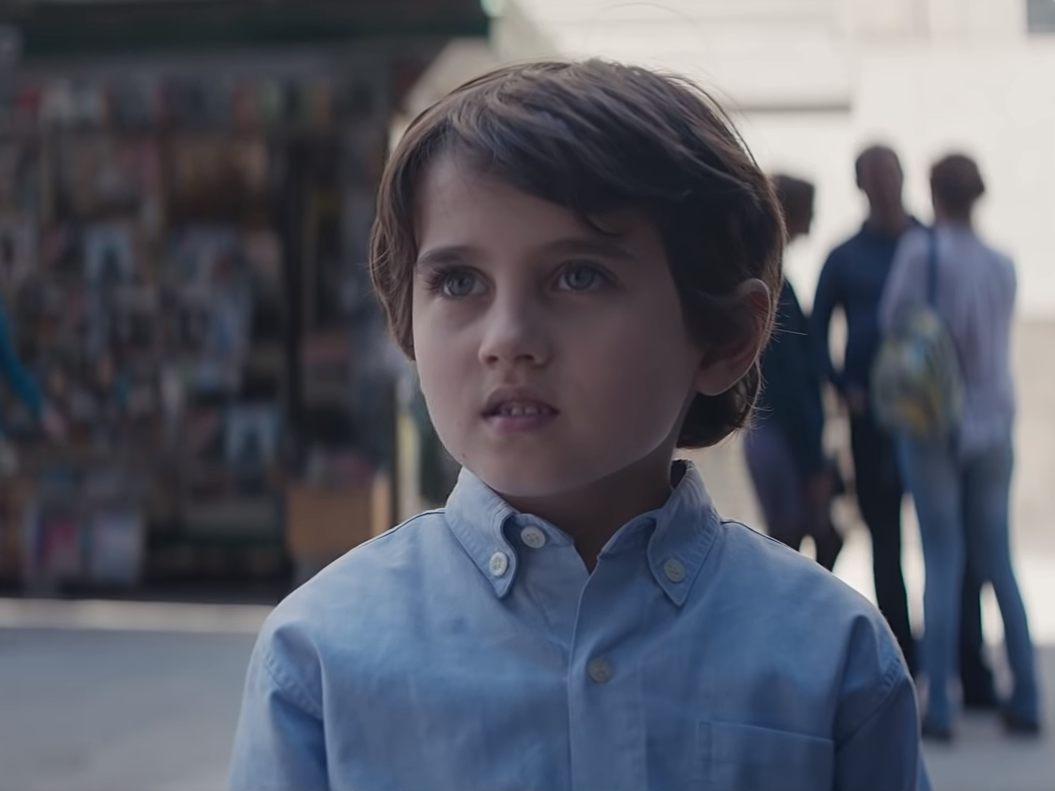The Independent's journalism is supported by our readers. When you purchase through links on our site, we may earn commission.
Gillette tackles toxic masculinity in new advert for #MeToo era
Some men have threatened to boycott the razor brand following the advert’s release
Your support helps us to tell the story
From reproductive rights to climate change to Big Tech, The Independent is on the ground when the story is developing. Whether it's investigating the financials of Elon Musk's pro-Trump PAC or producing our latest documentary, 'The A Word', which shines a light on the American women fighting for reproductive rights, we know how important it is to parse out the facts from the messaging.
At such a critical moment in US history, we need reporters on the ground. Your donation allows us to keep sending journalists to speak to both sides of the story.
The Independent is trusted by Americans across the entire political spectrum. And unlike many other quality news outlets, we choose not to lock Americans out of our reporting and analysis with paywalls. We believe quality journalism should be available to everyone, paid for by those who can afford it.
Your support makes all the difference.Gillette’s new advert about the dangers of toxic masculinity and the importance of setting a good example for young boys has sparked a heated debate online, with one person describing it as an “amazing call to action”.
The campaign, which turns the brand’s slogan “The Best A Man Can Get” on its head to create “The Best Men Can Be” tagline, addresses several topical issues, including the impact of the #MeToo movement.
“Is this the best a man can get?” the narrator asks, as men of different ages are shown looking pensively at their reflections in the mirror.
Various clips are then shown on screen depicting cyber bullying, sexual harassment and mansplaining, with the narrator stating: “It’s been going on far too long.”
The advert also highlights the proliferation of the phrase “boys will be boys” as a means of excusing harmful or violent behaviour exhibited by young boys.
Gillette’s campaign urges men to make a point of calling out the detrimental behaviour of other men.
“There will be no going back because we, we believe in the best of men,” the narrator says.
The advert has drawn both praise and criticism online, with some stating that the release of the campaign is extremely timely considering the increasing prevalence of conversations about toxic masculinity.
“Thanks for this Gillette. I agree. We absolutely as men can do a better job instilling better morals and behaviour overall with one another,” one person tweeted.
“Handing those core values down to our kids is paramount,” they continued.
“’Be a good human’ is getting ever-more commerically viable,” another person wrote.
“I’m down with a future where it’s cool to be protective and proactive at making the world better.”
Some have argued that razor is taking advantage of its customers by sharing what they’ve described as a ”political” message.
Unsurprisingly, Piers Morgan had something to say about the advert.
“I’ve used @Gillette razors my entire adult life but this absurd virtue-signalling PC guff may drive me away to a company less eager to fuel the current pathetic global assault on masculinity,” he commented.

One person acknowledged that while the advert may have an ulterior motive, its overriding message is still undeniably effective and powerful.
“Exploitative? Maybe. Brave and timely? Absolutely,” they commented.
“Also I cried. Well done, @Gillette. #foroursons.”
A recent survey conducted by YouGov revealed the damaging effects of toxic masculinity.
The study, which was named ‘Future Men’, found that more than half of Britain’s young men feel under pressure to “man up”.
55 per cent of the participants stated that they feel as though crying in front of others would make them feel less like a man, and 67 per cent of 18 to 24 year olds said that they feel they have to exhibit “hyper-masculine” behaviour in difficult situations.

Join our commenting forum
Join thought-provoking conversations, follow other Independent readers and see their replies
Comments